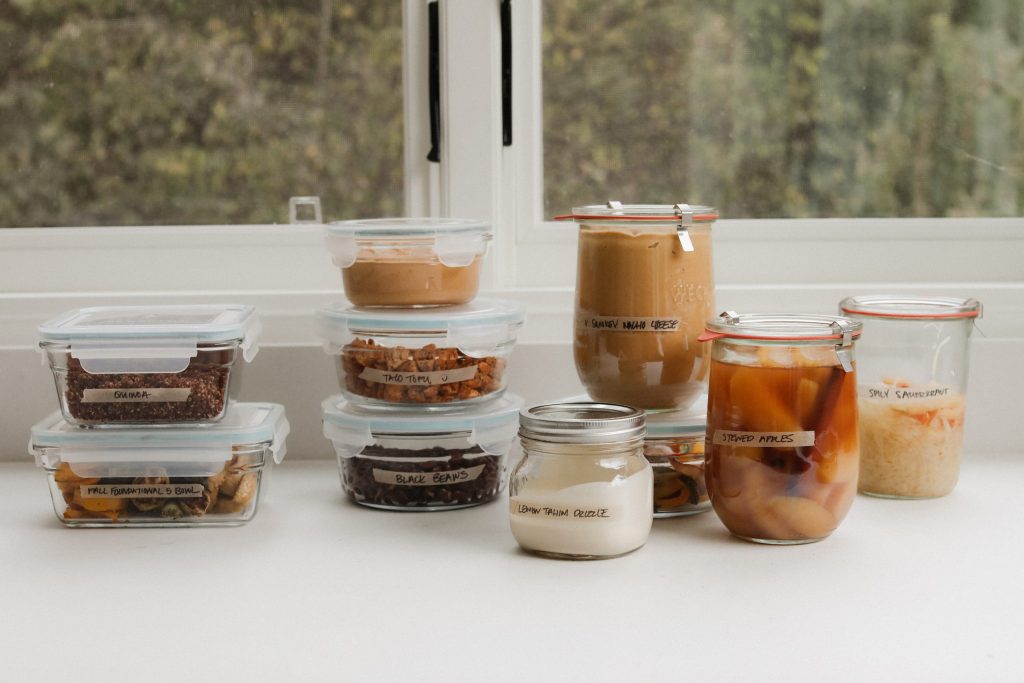If you’re constantly looking for a new diet to try or a challenge to join, eating can become exhausting and stressful. If you want to become a lifelong balanced eater, here are some strategies you can implement to change your habits for good.
A balanced eater is confident in the way they nourish themselves. They’re able to intentionally, mindfully eat in an easeful way so they never feel out of control around food or guilty about their food choices.
And the best part is, they never have to try another diet, detox, or cleanse. They never have to reset or restart on Monday, next week, or in the New Year.
Sounds pretty great, right?
So let’s chat about why the diets you’ve tried in the past haven’t worked, and these 5 strategies to make your balanced eating stick this time around.
Table of Contents
Diets, Detoxes, and Cleanses Don’t Work
We try them over and over again and hope for a different result. Yet without fail, we always eventually find ourselves back to old habits and wondering what went wrong.
In a nutshell, diets, detoxes, and cleanses don’t work. And to be honest, they aren’t meant to work. Their purpose is to keep you coming back, signing up, or joining again the next time you “fall off track”. They aren’t meant to teach you how to be a balanced eater.
So why don’t they work? Why do you feel so good for that short period of time, but are never able to reap the long-term benefits?
They lack the fundamental components that are necessary for a long-term behavior change. What are these fundamental components, you may ask? That comes next.
5 Strategies to Make Your Balanced Eating Habits Stick
Accountability and Support
The presence of accountability is key for a long-term behavior change. There are two primary types of accountability, internal and external.
Internal accountability is how you keep yourself in check when no one is watching. External accountability is how you remain accountable and responsible to other people or resources.
Balanced eating is all about sustainability, and sustainability and accountability go hand-in-hand. It’s very difficult to have one and not the other!
Developing systems for you to remain accountable to yourself as well as others is a vital first step to building your new lifestyle as a balanced eater.
Professional Guidance
Next, you need to have a reliable, trustworthy resource for information.
There’s a plethora of information out there today, and not all of it is accurate. Working with a licensed, Registered Dietitian can make a world of a difference.
They’re educated, certified, and trained in the science of food and how it impacts the human body. So many diets and trends out there today lack this vital component. Don’t let yourself fall into one of those traps again!
A Registered Dietitian can give you the strategies, education, and tools you need to become a balanced eater.
Slow, Steady Behavior Change & Habit Formation
Behavior and habit change don’t happen quickly. Research has shown us time and time again that it takes time.
Recent research has given us an average time frame, 66 days to be exact (1).
How many diets or challenges have you participated in that lasted for at least 66 days? Additionally, this research was conducted to analyze the formation of a single new habit. What about when we’re implementing multiple new habits? Chances are, we’re going to need a bit more time.
As cliche as it may sound, slow and steady wins the race.
Individualized Approach
No two people eat the exact same way, think the exact same way, or live the exact same lives.
So why should everyone do the same things to reach different goals? It sounds a little crazy, right?
Individualized recommendations are a necessity. When something unexpected happens, you need to have someone to support you who can tailor education and guidance to you and your needs.
Additionally, you need to develop goals that are individual to your particular scenario. While the knowledge you need to learn may be broader, when it comes to becoming a balanced eater for life, you need tangible, actionable, individualized goals to work towards.
Evidence-based Nutrition Information
Lastly, science has to play a role. Bias has a big hold on the health and wellness realm. So many diets are created solely based on the experience and bias of one individual or one group of people.
If it worked for us, then it will work for everyone too, right? Not always. This is where peer-reviewed, evidence-based information and research come in. When recommendations are based on science, you know they’re trustworthy and worth your while.
Make sure your next attempt at balanced eating is backed by science!
Become A Lifelong Balanced Eater
In order to make your nutrition and lifestyle habits stick, a combination of these strategies needs to be utilized.
This is exactly what we kept in mind when we built the Mindful Nutrition Method.
The Mindful Nutrition Method™ is a transformative online live experience with live group coaching, training and course materials, and a private community. Inside we teach our students how to create balanced eating habits for life that help you be free from food and diet obsession, maintain a balanced weight, cultivate a positive relationship with food and your body, and ultimately find joy in nourishing yourself.
Are you feeling stressed about food?
Sign up to watch our free masterclass today, where you’ll learn about #1 Habit That Keeps You Struggling With Your Weight and Relationship With Food — And How To Break Free From The Diet And Food Obsession Starting Now.
You don’t need to stress and obsess about food. There is a better way, and yes it’s possible to cultivate a positive relationship with food! Join this free balanced eating masterclass to learn how.
